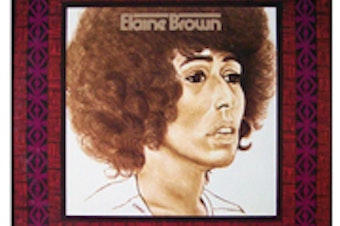Megan Sukys
Stories
-

From the KUOW archives: Poet Mary Oliver celebrates life, nature and her dog
We dug into our KUOW archives and found excerpts from that night along with commentary by former Washington State poet laureate Elizabeth Austen, hosted by Megan Sukys.
-

Timeless Protest Songs From The Inspirational Elaine Brown
Local record producer and writer Pat Thomas recently compiled a collection of music written by and for the Black Power movement, "Listen, Whitey! The Sounds of Black Power 1965–1975." One of the musicians he discovered in putting the album together is a woman named Elaine Brown. She was the head of the Black Panther party during the mid '70s. Today, she's most well known for her activism for prisoners, but Pat thinks her music from the late '60s and early '70s has a message that still applies today. He recommends listening to "Seize The Time," "The End of Silence" and "Until We're Free."http://youtu.be/oC-JbT9ic7gOther stories from KUOW Presents:A Car Can Transport People Out Of PovertyThey Won't Tell You Their Names, But They'll Help You Hide Your MoneyGood Girls RevoltThe Inspirational Elaine Brown: Timeless Protest SongsWriter's Almanac
-
You Have To Enter To Win: A Female Pilot Among Men
Only 3 percent of commercial airline pilots are women. But if you were flying into Anchorage, Alaska back in 2006, you'd be glad Stephanie Wallach was your pilot. On that flight, Stephanie made an emergency landing in an MD–80 jetliner after an engine failed.
-
Steven Bender: Films Of The Mexican-American Experience
Steven Bender is a law professor at Seattle University. He writes about the policies and issues involving Mexican–Americans. And, he’s also kind of obsessed with deconstructing popular culture messages about the lives and experiences of Latinos, because he’s seen a lot of negative stereotypes. Professor Bender talked with KUOW's Jamala Henderson about watching three films that present a more nuanced portrayal of Mexicans and the Mexican–American experience.
-
Opium University
University of Idaho is unpacking 1000 pieces of rare opium smoking equipment. An eccentric collector beat his addiction. Now he just wants them out of his house. Correspondent Tom Banse has the intriguing back story of how these so-called "instruments of self-destruction" came to a small Northwest town.